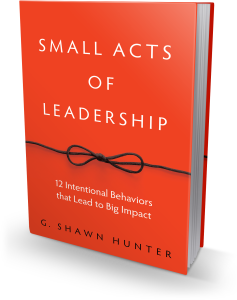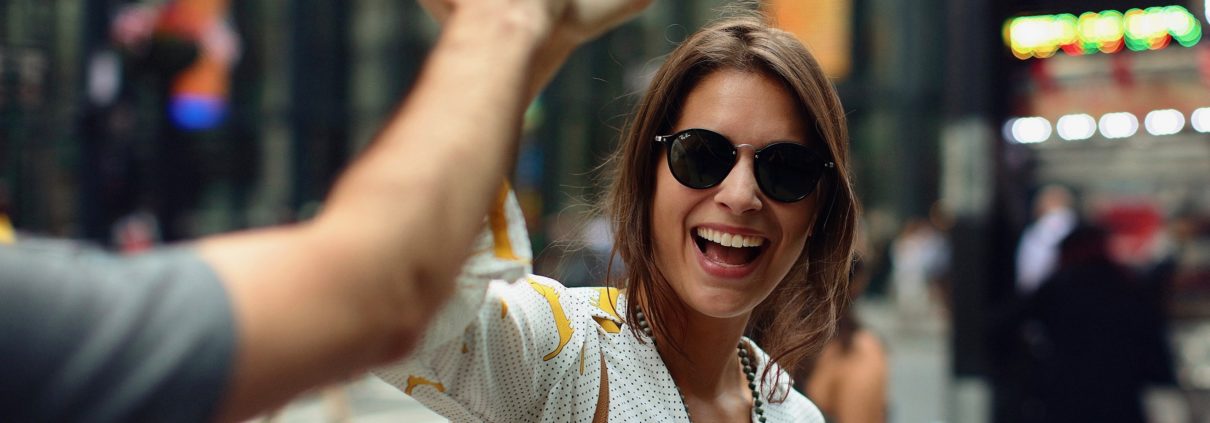Your Stubborn Optimism Is Contributing to Your Success
One day, the farmer’s horse jumps the fence and runs off. The farmer’s neighbor stops by and says, “I’m so sorry. That’s terrible news.”
The farmer shrugs and says, “Who knows if it’s good or bad news.”
Several days later, the horse returns with six other wild horses who have followed him home. The neighbor stops by and says, “That’s amazing! What wonderful luck!”
The farmer shrugs and says, “Who knows if it’s good or bad news.”
Soon after the wild horses have come to live in their pasture, the farmer’s son is thrown from a horse while trying to tame it. He breaks his leg in the fall and is bound to a wheelchair while he heals. The neighbor stops by and says, “What a horrible accident. I’m so sorry for your son and your family.”
The farmer shrugs and says, “Who knows if it’s good or bad news.”
While his son is healing in his wheelchair, the militia marches through the town, conscripting all able-bodied young people to serve in the war. The farmer’s son is spared from serving in the military. Again, the neighbor stops by and says, “What fortune that your son does not have to join the army.”
The farmer shrugs and says, “Who knows if it’s good or bad news.”
You get the point. This fable can go on and on. It’s about how our interpretation of events is a result of our view of the world, our innate sense of hope or despair. But hope and optimism aren’t quite the same thing. According to researcher Tali Sharot:
Hope is what you want to happen. Optimism is the belief that what you want to happen will happen.
– Tali Sharot, Ph.D.
Some people say the key to happiness is low expectations. The idea being that if we keep our expectations low, we aren’t likely to be disappointed, and therefore when things do go our way, we’ll be pleasantly surprised. But it turns out that most people aren’t pessimistic. Only 4% of us claim to be full-on pessimists, and that’s a good thing.
We (and by “we” I mean everyone – men, women, old, young, western culture, eastern culture, rich, poor…) commonly overestimate our own optimistic outlook of the world. Statistically we think we are more attractive, more likely to get promoted, more likely to stay married, and less likely to get in a car accident because we’re better drivers than most other people too. And through it all, we think we’re more modest than the next person too.
Privately, we hold more optimistic expectations for ourselves, our loved ones, and our children, yet hold more pessimistic expectations for strangers. Although the actual chance of getting some form of cancer during your lifetime is about 35%, most people think it will happen to the other guy.
This optimism bias turns out to be a good thing because – although it can lead us to underestimate our chances of developing illness, getting divorced, or getting in a car accident – it also leads us to be more cheerful and excited about our own future.
That innate optimism bias allows us to have more favorable expectations of upcoming events in our lives, which in turn, lets us be happier and healthier in the long term, in part because we expect it. According to the scientist Tali Sharot, it’s optimistic anticipation that keeps us cheerful, and that sunny outlook on life comes from the belief that we have control over our future.
The reason we are more optimistic about ourselves is because we believe we have control over our lives. And the reason we are more pessimistic about bigger ideas like the economy, climate change, or real estate markets because we believe we have no control. So when we think about the upcoming weekend, we can get excited about the plans we have made and when we think about the giant project we are on, we might believe it’s going to fail because we have little control over the outcome and success.
Here’s the big idea. When we take a moment to reflect on how our own decisions, efforts and emotions make a positive difference in the world around us, we are more likely to be optimistic about the outcome, which actually makes it more likely to happen, precisely *because* we take control. It can be a self-fulfilling prophesy.
Go forth and never apologize for your smile.
Start one small act at a time. Try our course Small Acts of Leadership to build action into your life every single day.
- ____________________________________________________

Last summer, my son and I bicycled across America with two other dads and their teenagers. We published a new book about it called Chasing Dawn. I co-authored the book with my cycling companion, the artist, photographer, and wonderful human jon holloway. Buy a copy. I’ll sign it and send it to your doorstep.



